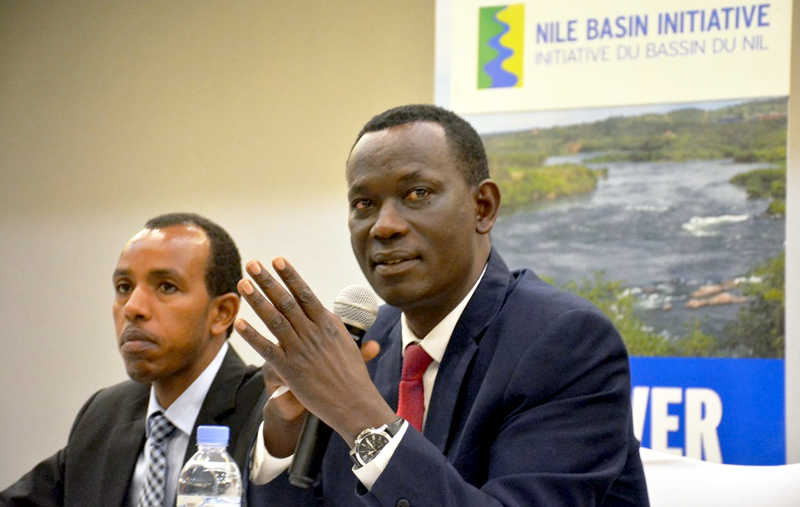News
Rwanda bans single-use plastics

NBI ED Innocent Ntabana with Rwanda’s Director for Water Resources Francois Tetero
President Kagame’s government goes extra mile to protect environment by abolishing industries in wetlands, launches ambitious plan to control erosion
KIGALI: The government of Rwanda has taken very dramatic steps to protect the environment and claim a spot among the most environmentally conscious countries on the African continent, if not in the whole world.
After nearly a decade since the East African country banned the use of plastic bags (Kaveera), Rwanda’s Parliament this week introduced a new law that will ban the use of single-use plastic bottles such as those used in packaging drinking water, and other soft drinks like sodas and juices.
The move could impact Ugandan businesses that have been exporting drinks to Rwanda.
In a news conference held in Rwanda’s capital Kigali, François Tetero, the Head of Water Resources Department of in Rwanda’s Ministry of Environment outlined a raft of other aggressive measures his government is undertaking to protect the environment.
Among them, is the process of removing all structures that are situated in wetlands across Kigali city. These include industries and commercial buildings such a hotels.
Tetero said: “The wetlands in city of Kigali have in the past been occupied by industries and other commercial buildings. There is a big programme now to relocate all the infrastructure from the wetlands so that they ca recover their functions. The main functions of wetlands is to filter water, control floods and conserve biodiversity.”
The ambitious plan, according to Tetero, is to ensure that by 2021, all industries are relocated from wetlands to Special Economic Zones.
The news conference was held as part of the activities to commemorate 20 years of the founding of the Nile Basin Initiative (NBI) whose headquarters are located in Entebbe, Uganda.
Rwanda’s pronouncements have attracted praise from many of the over 500 delegates from across the 10 member countries of the Nile Basin who gathered in Kigali on February 22, to celebrate the 20 years of the founding of the NBI.
This is especially after the Nile Council of Ministers, the main policy making organ of the regional body dedicated 2019 as the Year of the Nile. Burundi recently banned the planting of Eucalyptus in wetlands.
Dr. Abdulkarim Seid, the Deputy Executive Director of the Nile Basin Initiative (NBI) hailed Rwanda’s proactive steps.
He said: “This is indeed very positive news. It sets an example also for others to follow. Real change comes through actions on the ground for which the policy decisions are key.”
And Rwanda has not stopped at clearing wetlands in the city, it has a bigger plan to reduce soil erosion which is considered a major threat to the farming activities of the still predominantly agricultural country.
Being a hilly country, erosion is a major problem that not only steals fertile soils, but has also caused silting of rivers.
According to Tetero, the Rwandan government has mapped all areas across the country where soil erosion is a major problem. President Paul Kagame’s government wants to ensure that the erosion control programme reaches at least 50 percent of all the hilly areas that have been mapped as critical over the next six years.
“We want to work with communities to ensure sustainability of this programme. We are piloting an ecosystem payment programme whereby farmers are provided with incentives for controlling erosion coming from their farms. We believe that this system will attract more farmers to protect their own farmers, but in the process safeguard the rivers and the Nile basin in general.”
Tetero noted that tree planting in addition to terracing are some of the measures that will be encouraged in the community-driven erosion control programme.
Analysis
To many Ugandans, Rwanda’s laudable steps could be considered as radical. But in a country with a history of respect for rule of law as well as respect of nature, the latest move are likely to meet no resistance.
Across the country already, the practice of terracing hills to facilitate cultivation is almost mandatory.
Comments


























